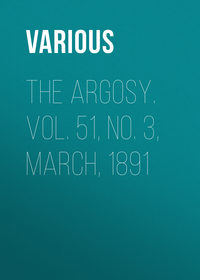Kitabı oku: «The Argosy. Vol. 51, No. 3, March, 1891», sayfa 4
Various
Bir şeyler ters gitti, lütfen daha sonra tekrar deneyin
Türler ve etiketler
Yaş sınırı:
0+Litres'teki yayın tarihi:
09 nisan 2019Hacim:
151 s. 2 illüstrasyonTelif hakkı:
Public Domain